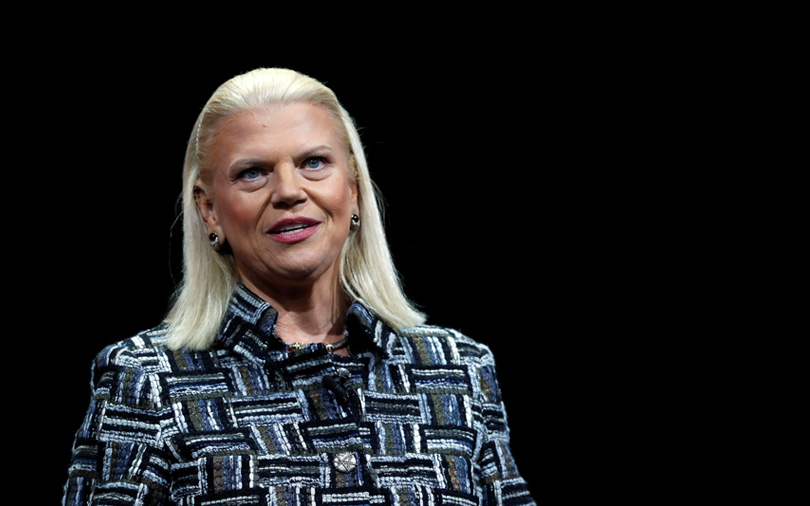
IBM’s Ginni Rometty sees AI and cloud driving new business for Indian enterprises


IBM chief executive officer Ginni Rometty sees new business in India coming from enterprises that seek to scale up artificial intelligence faster and that adopt multi and hybrid-cloud strategies. These technologies will bring more maturity to these companies’ digital transformation strategy, she added.
“This is the beginning of chapter 2, what we can call enterprise innovation and it will primarily have three pillars – scaling up AI faster, multi-cloud and hybrid-cloud approach and building trust,” the CEO said at the IBM Think Leadership Forum in Mumbai on Wednesday.
The first chapter comprises front-facing applications and use of cloud as a means of delivery or architecture, she said.

According to her, the next step in AI is to help it learn faster with less data to manage mission-critical applications for enterprises.
She also said that the ratio of private to public cloud for enterprises will remain at a 60:40 division and companies will use more than five cloud service providers.
The company’s cloud revenue increased 12% to $19.2 billion in 2018 as compared to the previous year. IBM’s total revenue for 2018 stood at $79.59 billion.

According to a recent report from market research firm Gartner, India’s total IT spend, which includes enterprise software, IT services and devices, is projected to total $89.2 billion in 2019, an increase of 6.7% from an estimated spending of $83.6 billion in 2018.
Previous visits
IBM’s India division is the largest unit outside the US in terms of employees and its importance is underscored by Rometty’s regular visits to the country each year.

Since her maiden visit to India in 2013, Rometty has always emphasised how innovation can help Indian enterprises become more agile and hit faster times to market with insights. She has also highlighted the importance of data in enterprises and how data scientists would be key to gaining meaningful insights.
Rometty also introduced the concept of ‘the Cognitive era’, stating that digital transformation is not the destination but just the beginning of the journey for enterprises.
In 2017, she said that IBM India will build new technologies and solutions around cognitive computing which includes natural language processing, image processing, etc.

“Build a future around cognitive. I think no country has a more important role to play than India,” she had said, adding that the industry should adopt a more responsible approach towards AI as it was a powerful technology.
In 2018, she said the company was betting big on the country by making substantial investments.
During her current visit, the CEO urged Indian developers to give back to open source in order to further boost the technology’s growth.

She also spoke about India’s need to reskill its workforce.
“India is home to more than four million developers and counting, and the country will rewrite how the world codes,” she said.
She said that the country needed to teach students, graduates and engineers to learn how to solve problems existing today.

The company, during her visit, also announced several partnerships to enhance the skills and careers of around 200,000 female students in the science, technology, engineering and mathematics (STEM) fields.
Financial performance
IBM’s India unit reported little change in revenue for the financial year ended March 2018, its filings with the Registrar of Companies (RoC) showed.
IBM India Pvt. Ltd posted consolidated revenue from operations of Rs 27,332.6 crore for 2017-18 compared with Rs 32,336.7 crore the year before. However, the numbers for 2016-17 included about Rs 5,010 crore additional revenue as per a pricing agreement with the Central Board of Direct Taxes covering transactions pertaining to export of IT services and recovery of reimbursable expenses pertaining to such export of services for the previous five years.
Excluding this additional revenue, the company’s revenue would have been around Rs 27,327 crore.
IBM India, led by Karan Bajwa, had shown an 18% increase in revenue for 2016-17 to Rs 23,359 crore.
The software services provider's India unit reported a consolidated net profit of Rs 2,783 crore for 2017-18. It had reported a profit of Rs 6,163.8 crore and Rs 1,826.8 crore for the previous two years.
